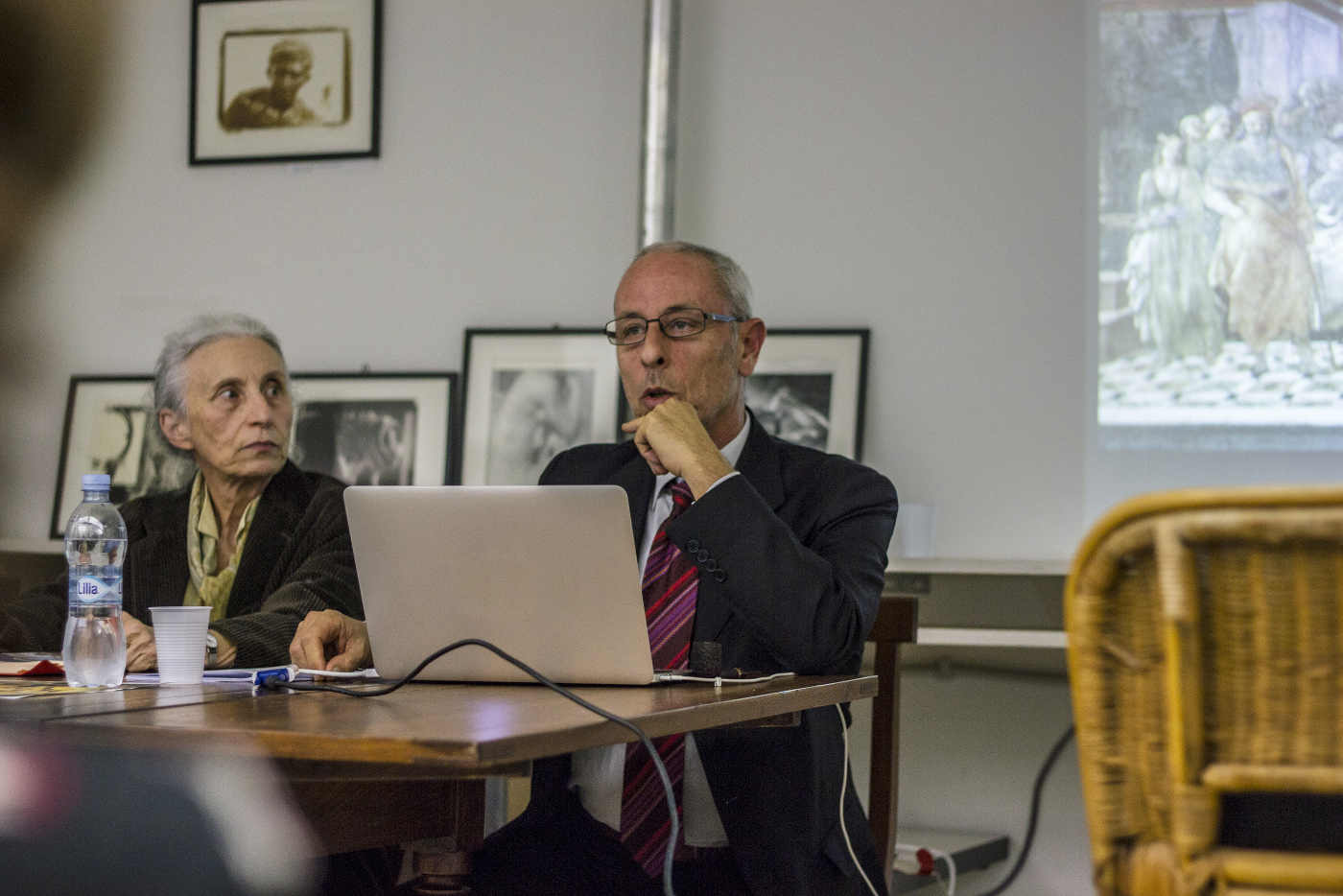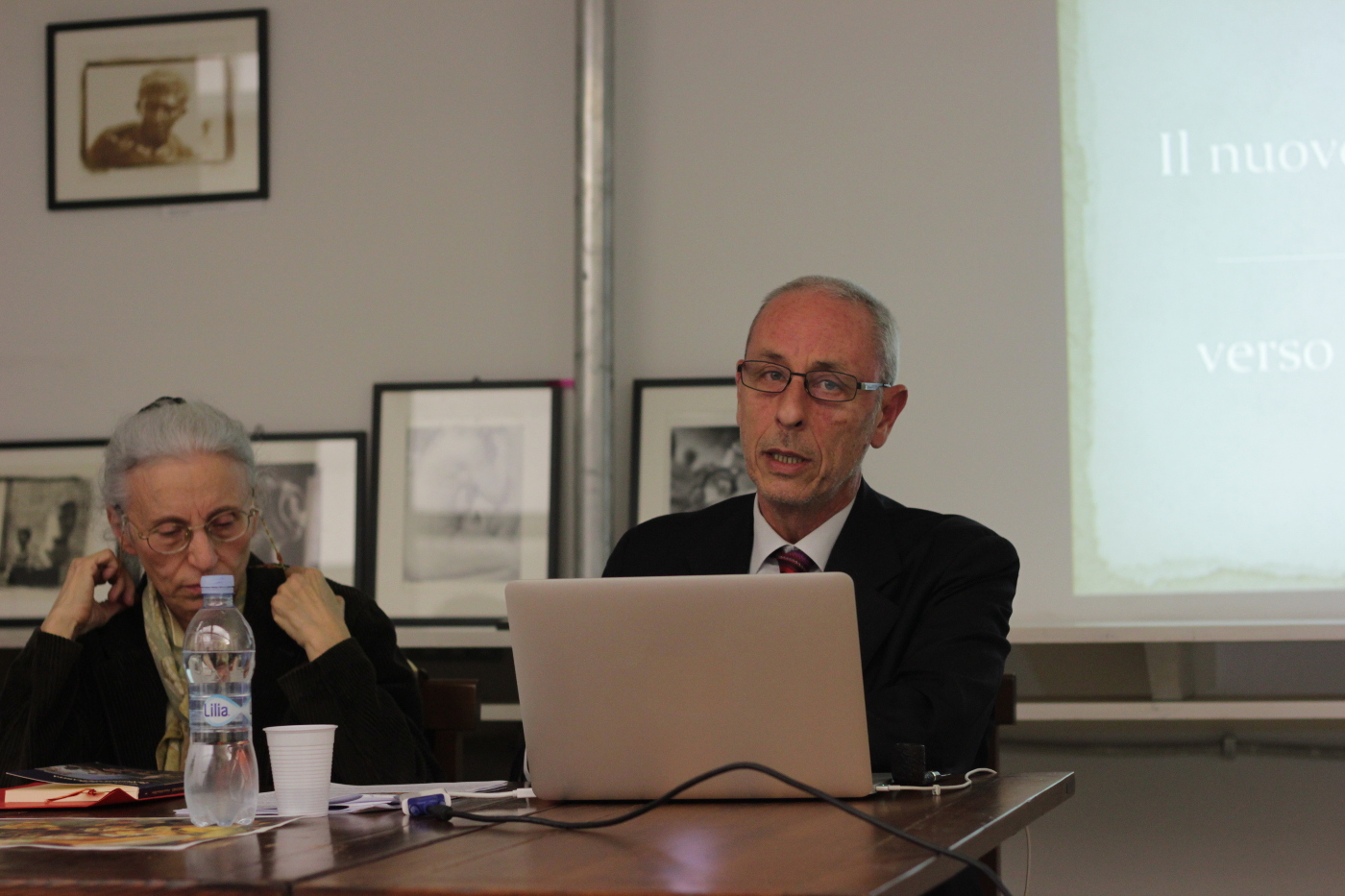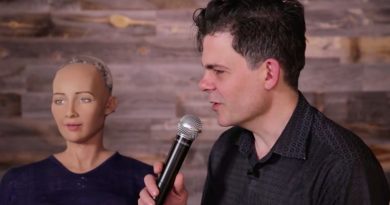Roundtable: new horizons open to Transdisciplinarity
On November 22nd, the opening ceremony of the academic year 2014-15 of Centro Studi Mythos, (Institute of Analytical Psychology and Symbolic Psychoanthropology) was held in the premises of CIRF (Research Centre on Imaginary Photography) in Rome.
 During the event, within the scenario of the photographic exhibition of Lorenzo Scaramella entitled “Kalokagathia: Art and Technique”, an interesting panel discussion on “New horizons open to Transdisciplinarity” took place.
During the event, within the scenario of the photographic exhibition of Lorenzo Scaramella entitled “Kalokagathia: Art and Technique”, an interesting panel discussion on “New horizons open to Transdisciplinarity” took place.
Scaramella’s works always surprise even those who have been following his artistic research for years, due to the intense expressiveness he reaches through ancient printing techniques.
After the introduction of Maria Pia Rosati (President of Centro Studi Mythos), Fabio Marzocca presented his work “The new scientific approach to transdisciplinarity” which was followed by the additions of Francesco Giordano and Lorenzo Scaramella and by the final discussion with attendees.
The scientific reductionism of past centuries has allowed the scientific knowledge to achieve great extent in understanding the processes of nature. However, the price to pay was to create an unbridgeable divide between scientific and humanistic culture, moving away the subject of the research from the research itself and fueling a objectivist knowledge of the individual parts through a dizzying proliferation of new increasingly specialized disciplines.
Transdisciplinarity means, then, to overcome this divide between the human and the natural sciences by accepting the challenge of a complexity of thought which brings back the research – and all human activities – towards an approach that is able to look beyond individual specializations, in answer to a new “Science of Man” (as mentioned by Gilbert Durand) open to the contributions of every discipline and every culture.
Today’s man feels a pressing need for change, to move away from a social model that does not reflect his needs of complexity and integration. This urgency is also supported by the fervent activity that scientists and intellectuals are taking place from 50 years. The physicist Basarab Nicolescu, with the philosopher Edgar Morin and the painter and writer Lima de Freitas, drafted the Charter of Transdisciplinarity in 1994, but already in the seventies, the psychologist Jean Piaget introduced the new terminology in a lecture, hoping for “a global system, without stable borders between the disciplines themselves“.
 The physical chemist and Nobel laureate Ilya Prigogine had already noted in 1999 how modern science had contributed to the radical break between nature and man, increasing the loss generated by a hyper-specialized society.
The physical chemist and Nobel laureate Ilya Prigogine had already noted in 1999 how modern science had contributed to the radical break between nature and man, increasing the loss generated by a hyper-specialized society.
Professor Alfonso Montuori of the California Institute for Integral Studies, has recently introduced a possible heuristic of transdisciplinarity, highlighting how transdisciplinarity is not only a different method of approach to knowledge, but also a way to understand how knowledge itself is created.
These signals of loss and increased need for integration are mainly based on the sense of isolation that surrounds the modern man in this technological society. After centuries of scientific development targeted to the knowledge of how nature works, it is now fundamental – to avoid drifts towards unexpected targets – to encompass the essential elements of the human being: his creative, imaginative and symbolic function.
In conclusion, the transdisciplinary research must first find the man and his fundamental characteristic, to generate through his imagination creative solutions, new possibilities, new inaccessible ways in fragmented and reductive visions of the reality.
During the roundtable, they focused on a meaning of the preposition trans: that of ‘over’. If we look up beyond the boundaries of our discipline, to raise our eyes towards a broader horizon, maybe we can still feel supported and inspired by the great force that for Dante Alighieri ‘moves the sky and other stars’.


